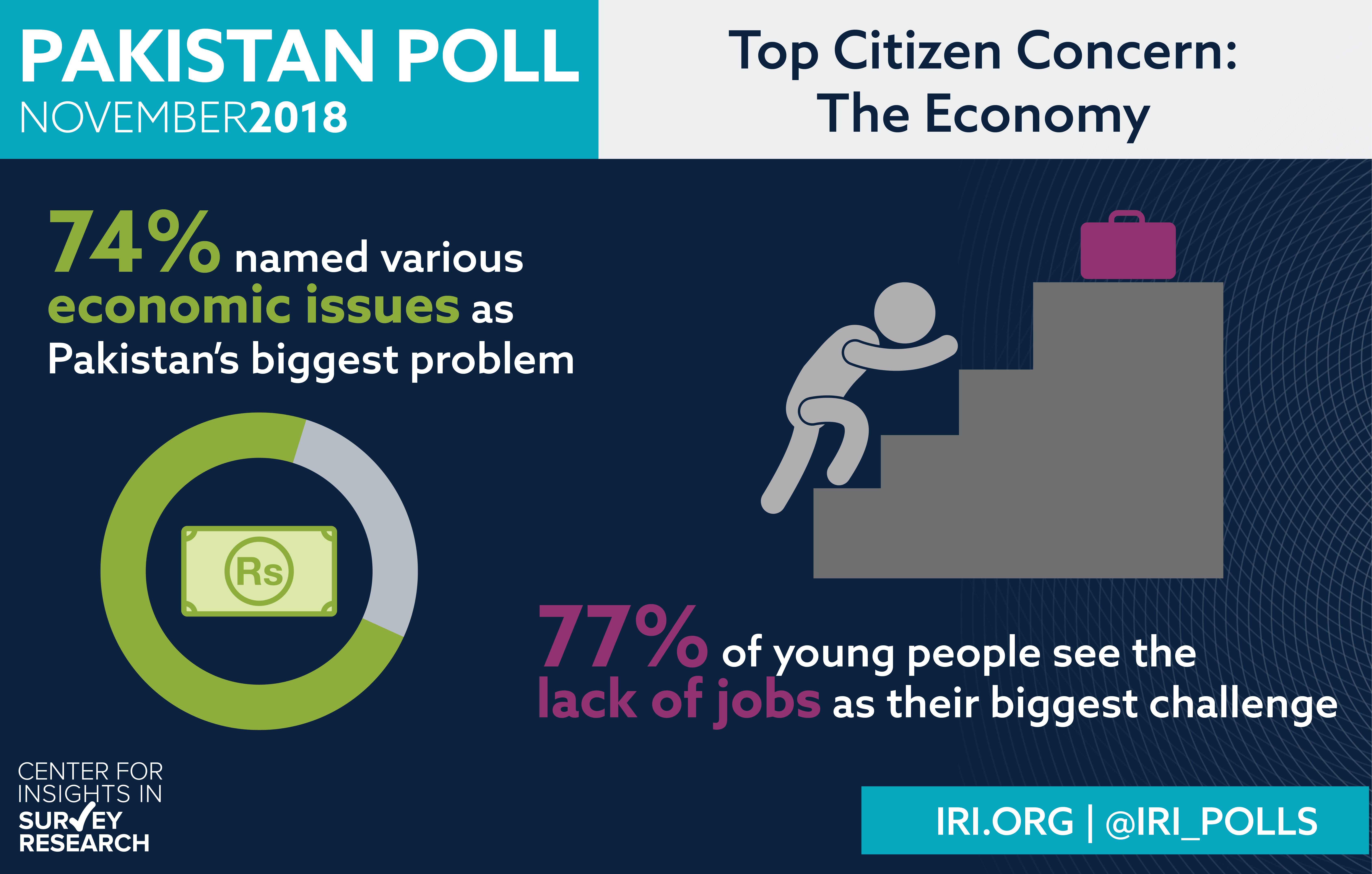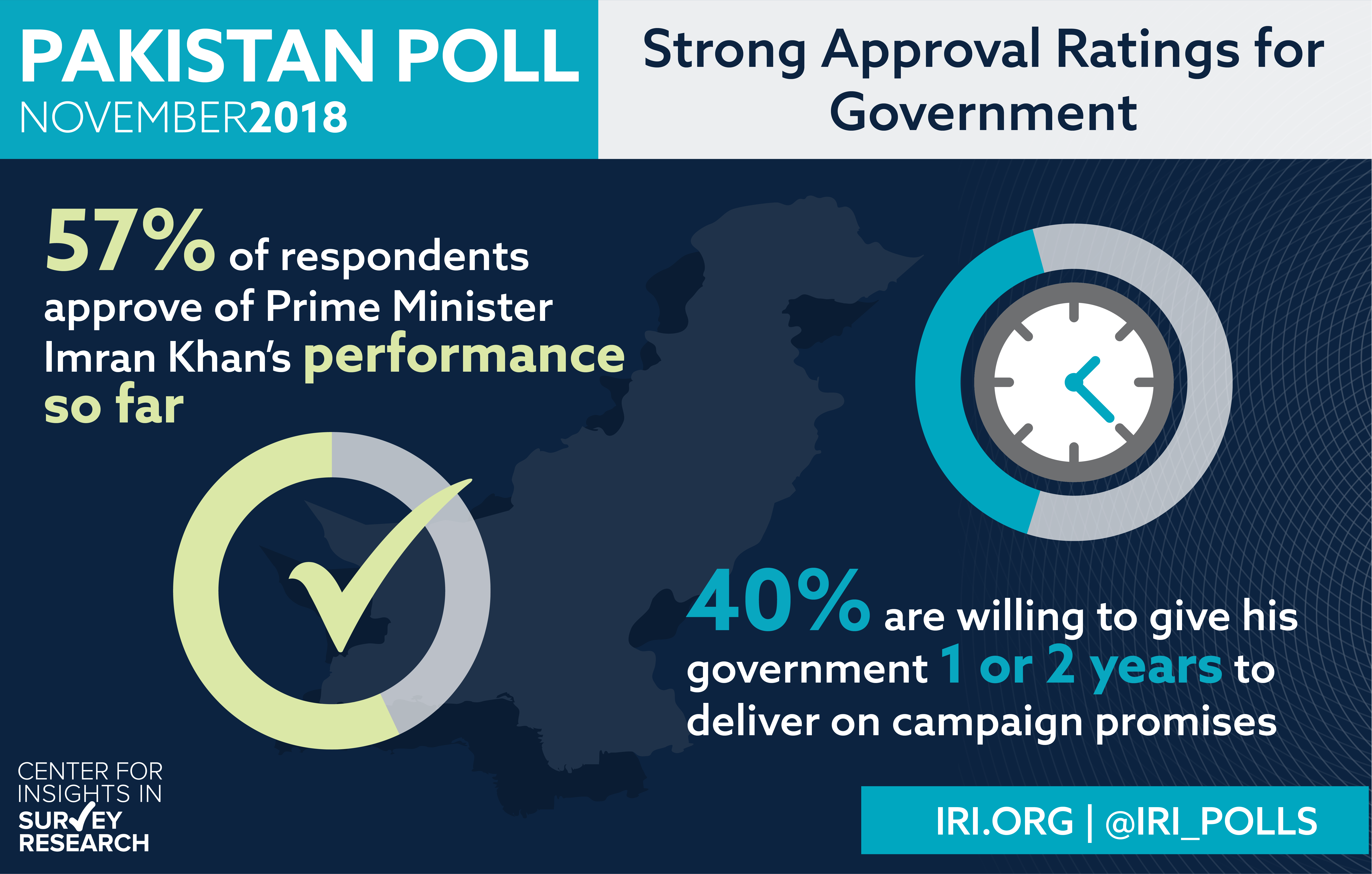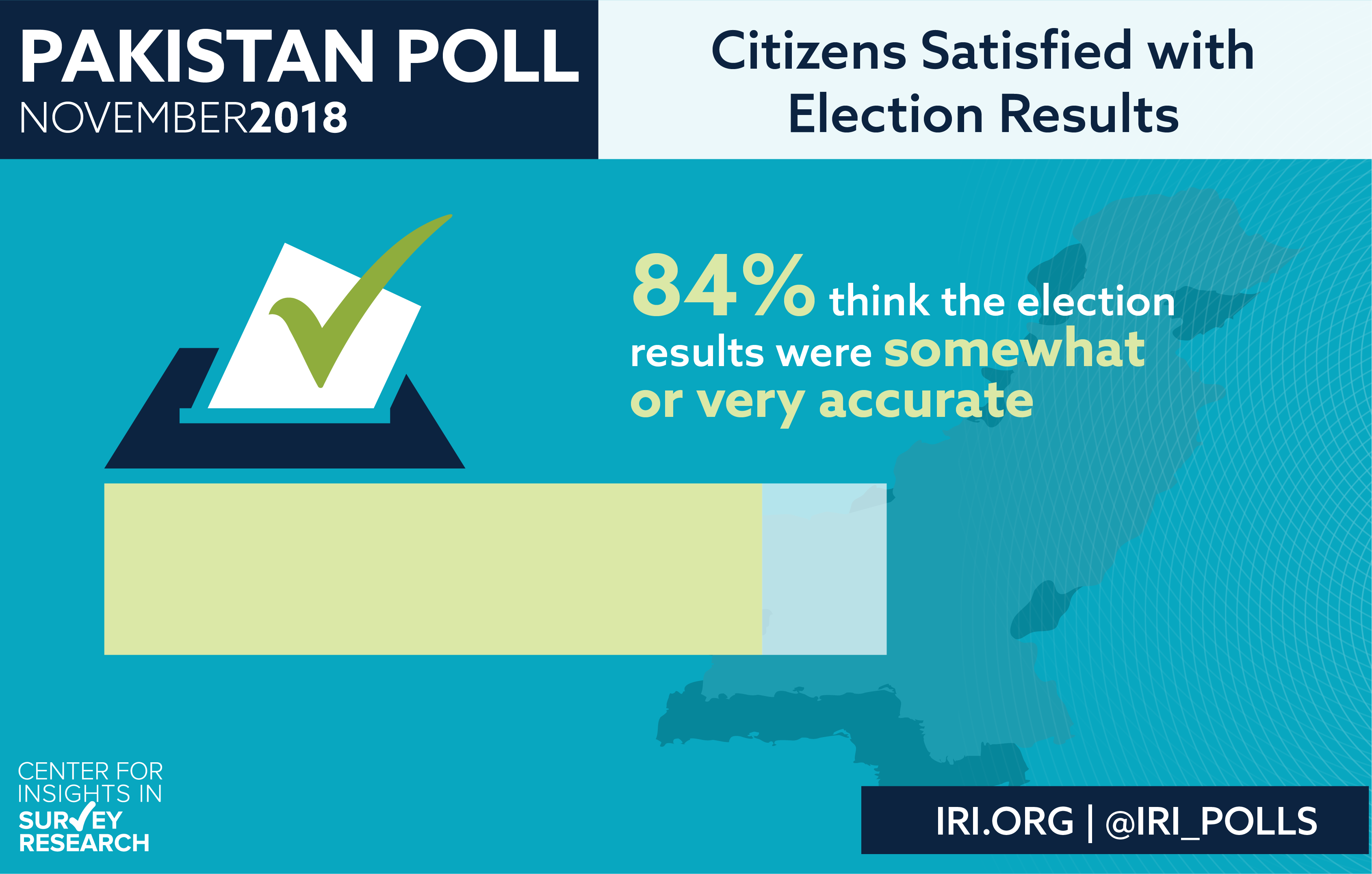New Pakistan Poll: Strong Approval for New Government; Economic Concerns
Washington, D.C.—A new nationwide poll of Pakistanis by the International Republican Institute’s (IRI) Center for Insights in Survey Research reveals strong approval ratings for the new government, concerns over the state of the economy, and confidence in the July 2018 elections.
“Poor economic conditions are a significant source of anxiety for Pakistanis,” said Johanna Kao, IRI Regional Director for Asia. “Despite Pakistan’s economic challenges, confidence in the new government and the prime minister is high. Pakistanis seem to be willing to give the government time to deliver on its campaign promises, which will require difficult economic reforms to revitalize the country’s struggling economy.”
A combined 57 percent of respondents think that Prime Minister Imran Khan is doing either a “very good job” (17 percent) or a “good job” (40 percent) so far, and a combined 56 percent approve of the government. A plurality of respondents (40 percent) said that they are willing to give the government one year (26 percent) or two years (14 percent) to start delivering on their campaign promises.
“The survey suggests that the government’s performance will be judged primarily on its ability to address pressing economic concerns,” said Johanna Kao. Inflation was singled out as the most important problem in Pakistan (39 percent), followed by poverty (18 percent) and unemployment (15 percent). Nearly 77 percent of respondents between the ages of 18 and 35 see the lack of jobs as the biggest challenge facing young people in Pakistan.
The poll also indicates high levels of confidence in the results of the July 2018 national elections. A clear majority (84 percent) say that the results are either “very accurate” (46 percent) or “somewhat accurate” (38 percent). A combined 83 percent believe that the election was either “completely free and fair” (50 percent) or “mostly free and fair” (33 percent).
Methodology
This survey was conducted on behalf of the Center for Insights in Survey Research. Data was collected between November 1 and November 22, 2018 through in-home, in-person interviews. The sample consisted of 3,991 respondents aged 18 and older and is representative of voting-age adults nationally. The margin of error was 1.6 percent.
Background
A nonprofit, nonpartisan organization, IRI advances freedom and democracy worldwide by developing political parties, civic institutions, open elections and democratic governance. Since 2002, IRI has supported Pakistan’s democratic development through programs that encourage citizen-centered government, promote women’s political participation and strengthen the country’s multi-party political system. IRI fields public opinion research to help Pakistan’s political parties and elected officials identify citizen priorities and respond to their constituents.


Top